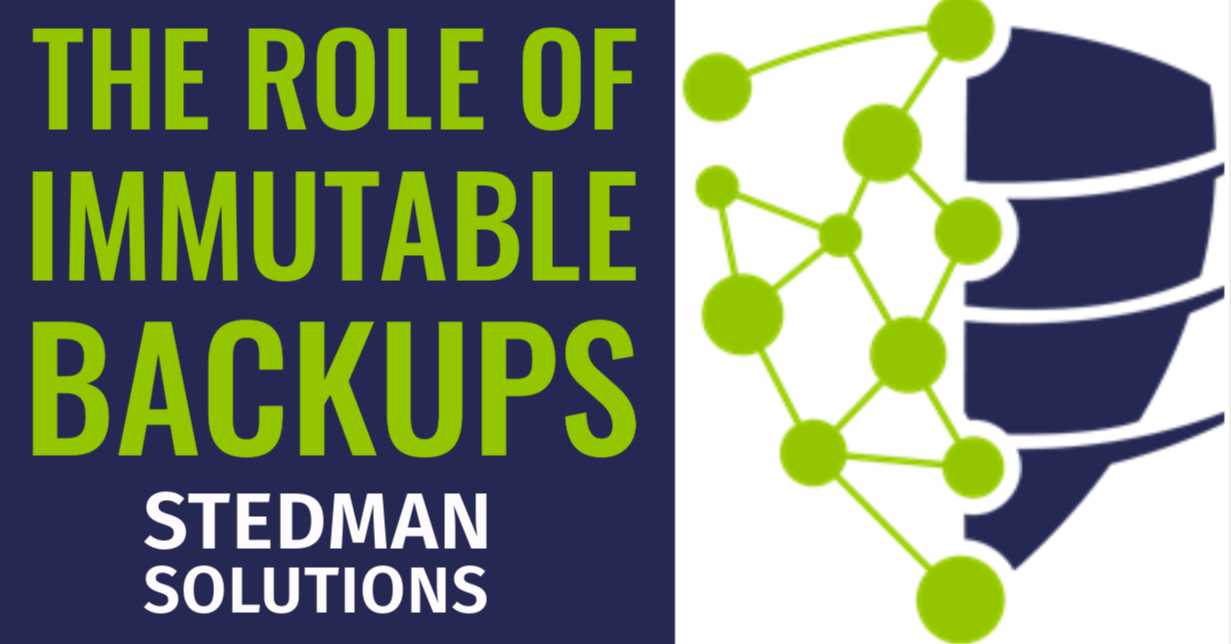Securing SQL Server Against Ransomware: The Role of Immutable Backups
In the digital age, data is arguably an organization’s most valuable asset. For those of us who have been in the trenches with SQL Server since the early ’90s, the evolution of data management and security has been both fascinating and daunting. Today, the specter of ransomware attacks casts a long shadow over businesses, threatening to encrypt critical data and grind operations to a halt. Amidst this landscape, immutable backups emerge as a crucial line of defense for SQL Server databases. Let’s delve into why immutable backups are essential and how you can implement them to fortify your SQL Server against ransomware threats.
The Importance of Immutable Backups
Immutable backups are, by design, unchangeable once they are written. They cannot be deleted, altered, or encrypted – not even by those with administrative privileges. This characteristic makes them an invaluable asset in the fight against ransomware. When attackers can’t encrypt or modify your backup files, you retain the ability to restore your SQL Server databases to their pre-attack state, ensuring business continuity and data integrity.
For organizations leveraging SQL Server, the importance of immutable backups cannot be overstated. They not only serve as a robust recovery point in the event of a ransomware attack but also help in meeting compliance requirements by ensuring that critical data remains unaltered over time.
Strategies for Implementing Immutable Backups in SQL Server
While SQL Server itself does not directly offer immutable backup options, several strategies can be employed to achieve immutability:
- Cloud Storage Options: Services like Amazon S3 and Azure Blob Storage offer immutable storage solutions. By configuring your SQL Server backups to these services and enabling their WORM (Write Once, Read Many) capabilities, you can ensure that backups remain untouched until they are needed for recovery.
- Hardware Solutions: Certain NAS (Network Attached Storage) or SAN (Storage Area Network) devices provide immutability features. By backing up your SQL Server databases to these devices, you can leverage their hardware-based immutability to protect against data tampering.
- Backup Software with Immutable Features: Some third-party backup solutions integrate seamlessly with SQL Server and offer immutability features. These solutions can be configured to store backups in a way that prevents alteration, providing an extra layer of security against ransomware.
- File System-Level Immutability: Newer file systems, like ZFS, offer native immutability features. By storing SQL Server backups on volumes managed by these file systems, you can achieve a degree of protection through inherent immutability.
Best Practices for Immutable Backup Management
- Regular Testing: Regularly test your Backup and Recovery process to ensure that you can reliably restore your SQL Server databases from immutable backups.
- Retention Policies: Implement sensible retention policies that balance between compliance requirements and storage costs, ensuring that you have backups spanning back to a safe recovery point.
- Encryption: Encrypt your backups to protect sensitive data. Even though the backups are immutable, encryption adds an extra layer of security, safeguarding against unauthorized access.
In the fight against ransomware, immutable backups are an essential tool in the arsenal of any organization running SQL Server. While the implementation might require a blend of cloud services, hardware solutions, or third-party software, the peace of mind and security they offer are well worth the investment.
For those looking to deepen their understanding of SQL Server Performance tuning, troubleshooting, or ransomware protection strategies, Stedman Solutions offers specialized training and consulting services. Check out our offerings at Stedman’s SQL School (https://Stedman.us/school) for more information on how we can help you secure and optimize your SQL Server environments.
Remember, in the realm of data security, preparation and resilience are key. By incorporating immutable backups into your data protection strategy, you can shield your SQL Server databases from the devastating impacts of ransomware attacks, ensuring your data remains safe, secure, and recoverable, no matter what challenges lie ahead.
More from Stedman Solutions:

Steve and the team at Stedman Solutions are here for all your SQL Server needs.
Contact us today for your free 30 minute consultation..
We are ready to help!
